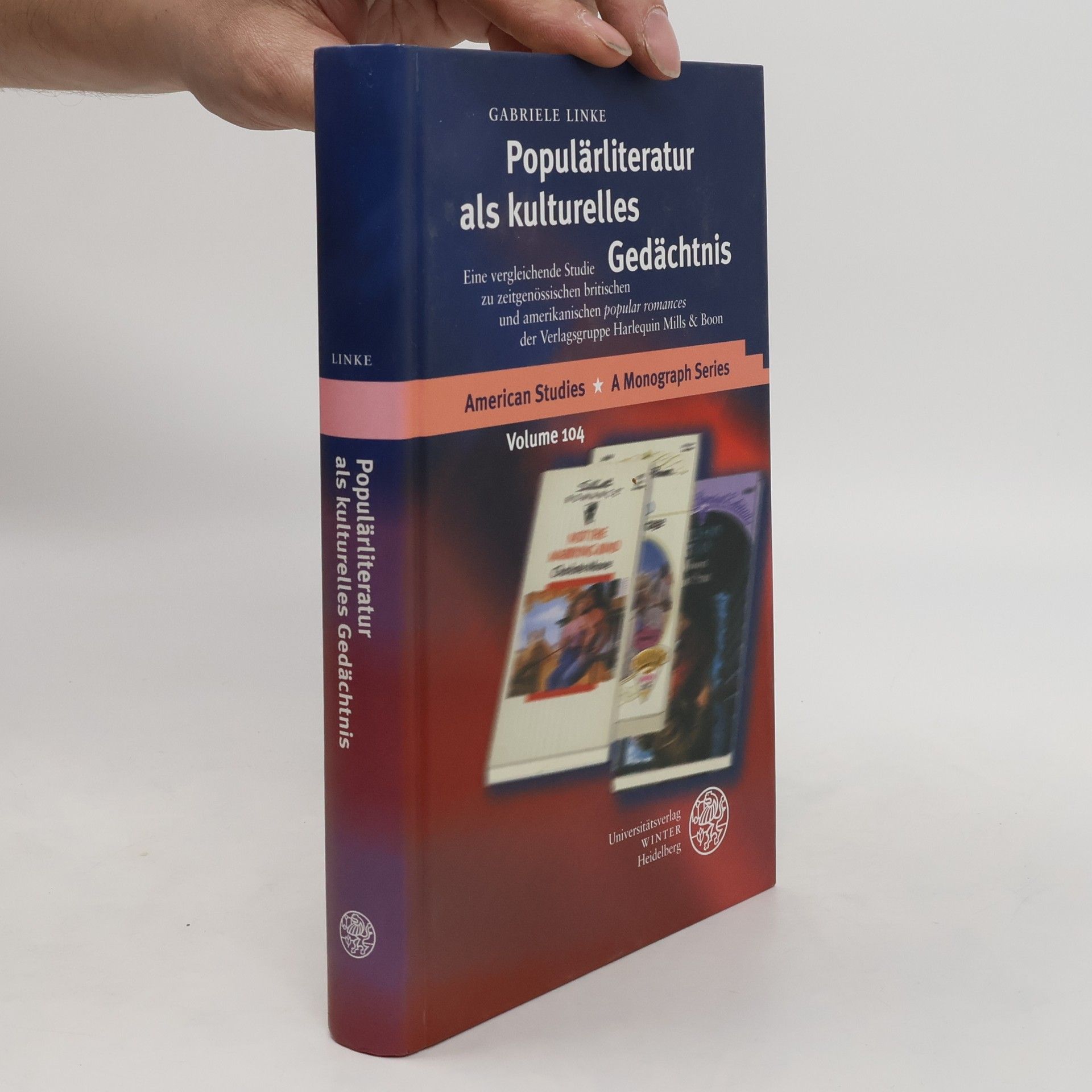Populärliteratur als kulturelles Gedächtnis
Eine vergleichende Studie zu zeitgenössischen britischen und amerikanischen „popular romances“ der Verlagsgruppe Harlequin Mills & Boon
- 382 pages
- 14 hours of reading
Die Studie wirbt um ein neues Verständnis von Populärliteratur, indem sie aufzeigt, wie romances in einen gesellschaftlichen Prozess der Reproduktion kultureller Standardisierungen und des Erinnerns an historische Erfahrungen und Ereignisse eingebunden sind. Da der Erfolg der Serienliebesromane seit den 1970er Jahren mit der Internationalisierung des Buchmarktes einhergeht, erhebt sich die Frage, ob und wie ein standardisiertes und weltweit vermarktetes Genre als nationalkulturelles Gedächtnis fungieren kann. Der Vergleich britischer und nordamerikanischer romances zeigt, wie nationalkulturelle Details das Erzählschema mit Leben erfüllen und wie auf genrespezifische Weise an Geschehnisse der nationalen Vergangenheit wie den Vietnamkrieg oder die britischen Kolonialkriege erinnert wird.
